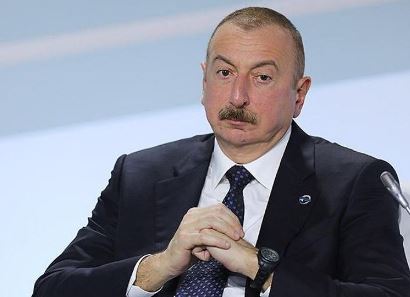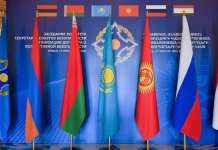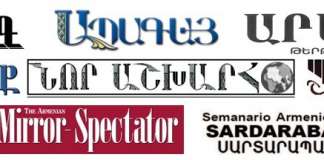As EU leaders gather in Granada on Thursday, their most publicised agenda item is the situation with Armenia after Azerbaijan took control of Nagorno-Karabakh following a 24-hour military operation that ended almost four decades of tension, writes EURACTIV.
The international press has focused on Azerbaijan’s strongman, Ilhan Aliyev, who snubbed the five-way talks planned on the sidelines of the summit with the leaders of France, Germany, and Armenia, hosted by Council President Charles Michel.
Such a snub is embarrassing for the hosts. But Aliyev is the EU’s favourite dictator. After Russia attacked Ukraine, Azerbaijan’s gas became precious as Russian supplies dwindled.
Aliyev has so far accepted all the invitations by the EU’s Michel to discuss Karabakh, and there were many photo opportunities with his Armenian counterpart Nikol Pashinyan, despite the total failure of the exercise.
Now Aliyev took Karabakh as a low-hanging fruit because he could.
He can also claim there is no ethnic cleansing: The population of 120,000 left to seek refuge in Armenia, not because Aliyev’s army drove them out but because they feared this would happen. There is no damage to civilian infrastructure such as hospitals, schools and housing or to cultural and religious sites in Karabakh, the UN said.
So, everything is fine, the EU’s favourite dictator has accomplished the perfect war – without casualties, without destruction, without war crimes.
Moreover, under international law, Nagorno-Karabakh is the territory of Azerbaijan, so one may argue that this was going to happen sooner or later.
Aliyev succeeded, it seems, because Europe has forgotten how things went down in Munich in 1938.
Appeasing the dictator (Hitler in that case) was the basis of the 1938 agreement between France, the UK, fascist Italy, and Nazi Germany. It essentially provided for the German annexation of a part of Czechoslovakia called the Sudetenland, where more than three million people, mainly ethnic Germans, lived.
Giving Hitler “what he wants” to appease him was of course a shameful and wrong move.
Aliyev is suspected of gearing up for another war, whose aim is to establish a land corridor between the Azeri enclave of Nahichivan and mainland Azerbaijan – by grabbing Armenian territory.
And he has the support of Turkey, which has megalomaniac dreams about a bigger Turkic corridor, all the way from Anatolia to the Uigurs in China. The only piece of land lacking to complete this puzzle is Armenian territory.
Aliyev knew he would be under pressure in Granada, alone against four at the five-way talks, so he turned down the invitation. As a pretext, he used “pro-Armenian statements” by French officials and an alleged French decision to supply Yerevan with military equipment.
French Foreign Minister Catherine Colonna was the first Western official to visit Yerevan after the fall of Karabakh. But she didn’t announce a decision to supply Armenia with French armament. What she said was:
“France has given its agreement to the conclusion of future contracts with Armenia, which will allow the delivery of military equipment to Armenia so that it can ensure its defence.”
Giving “an agreement” for the conclusion of future contracts does not mean military supplies would start anytime soon. And France doesn’t have much to send anyway, as the supplies sent to Ukraine have dried up the stocks.
The real context: France is home to half a million ethnic Armenians and Colonna needed to visit Yerevan and say something that would sound nice and appropriate. Aliyev knows that, but the pretext was just too good to pass up.
The EU made a major mistake by not inviting Turkish President Recep Erdoğan to the five-way mediation talks in Granada. The Turkish president is a major player in the region, and a strong backer of Azerbaijan, and should not be absent from such talks.
If the Granada meeting was expected to be a milestone, indeed, it will be one, in terms of failed European policies.
The gathering will likely encourage Aliyev and Erdoğan to go ahead and grab from Armenia what they want. The Armenians can try to fight – but perhaps they had better surrender. It seems no one is really prepared to help them.
















